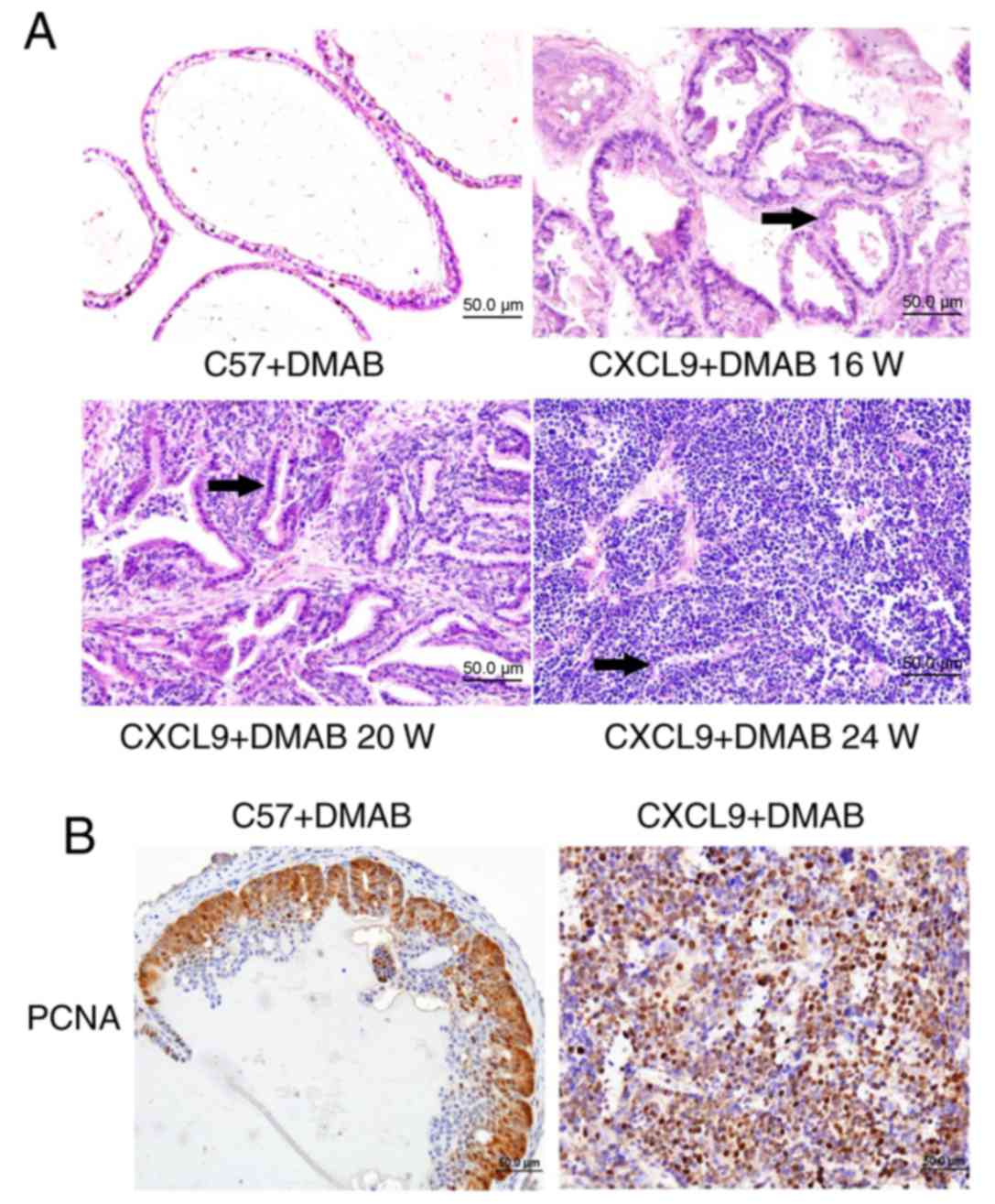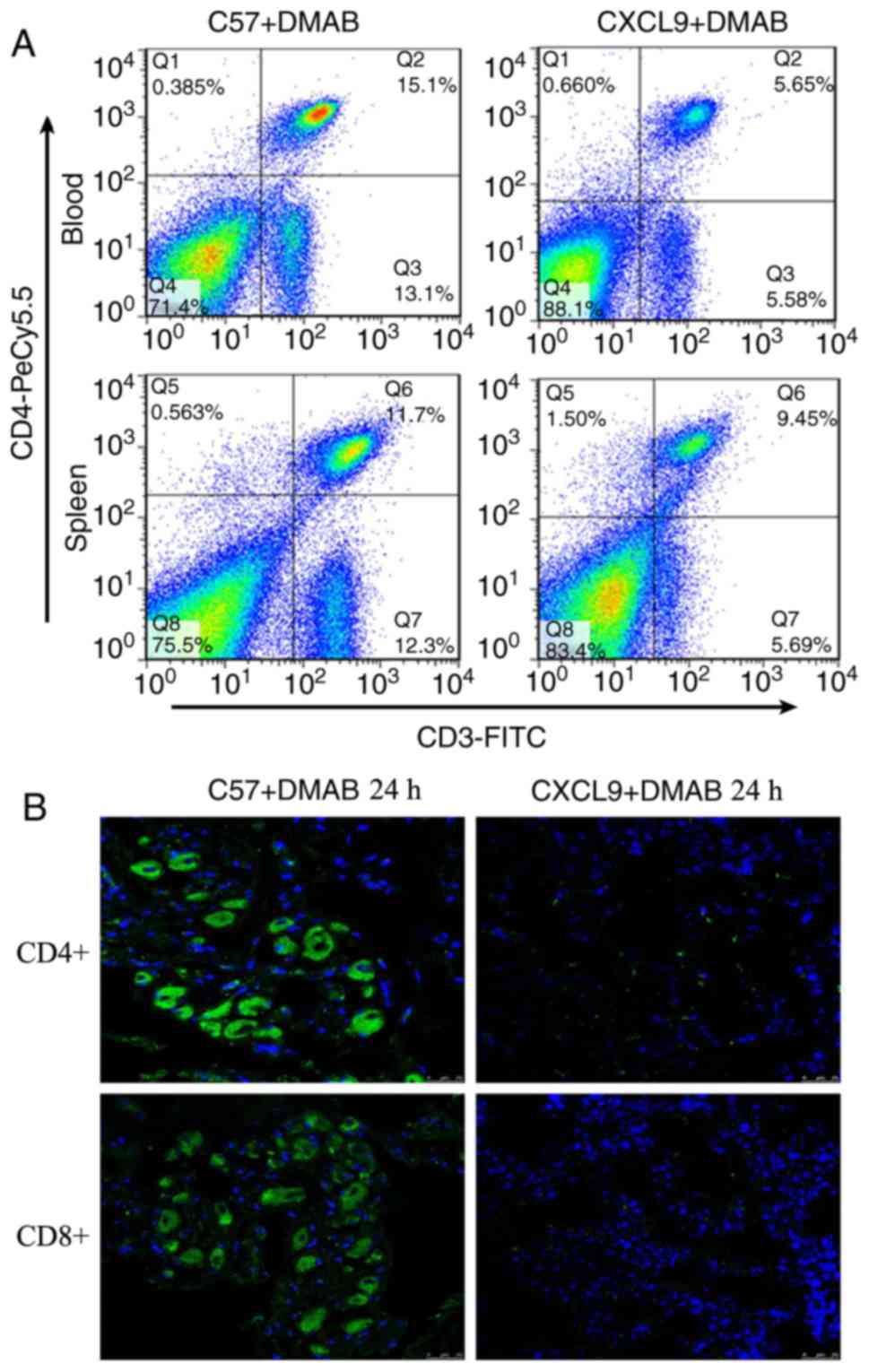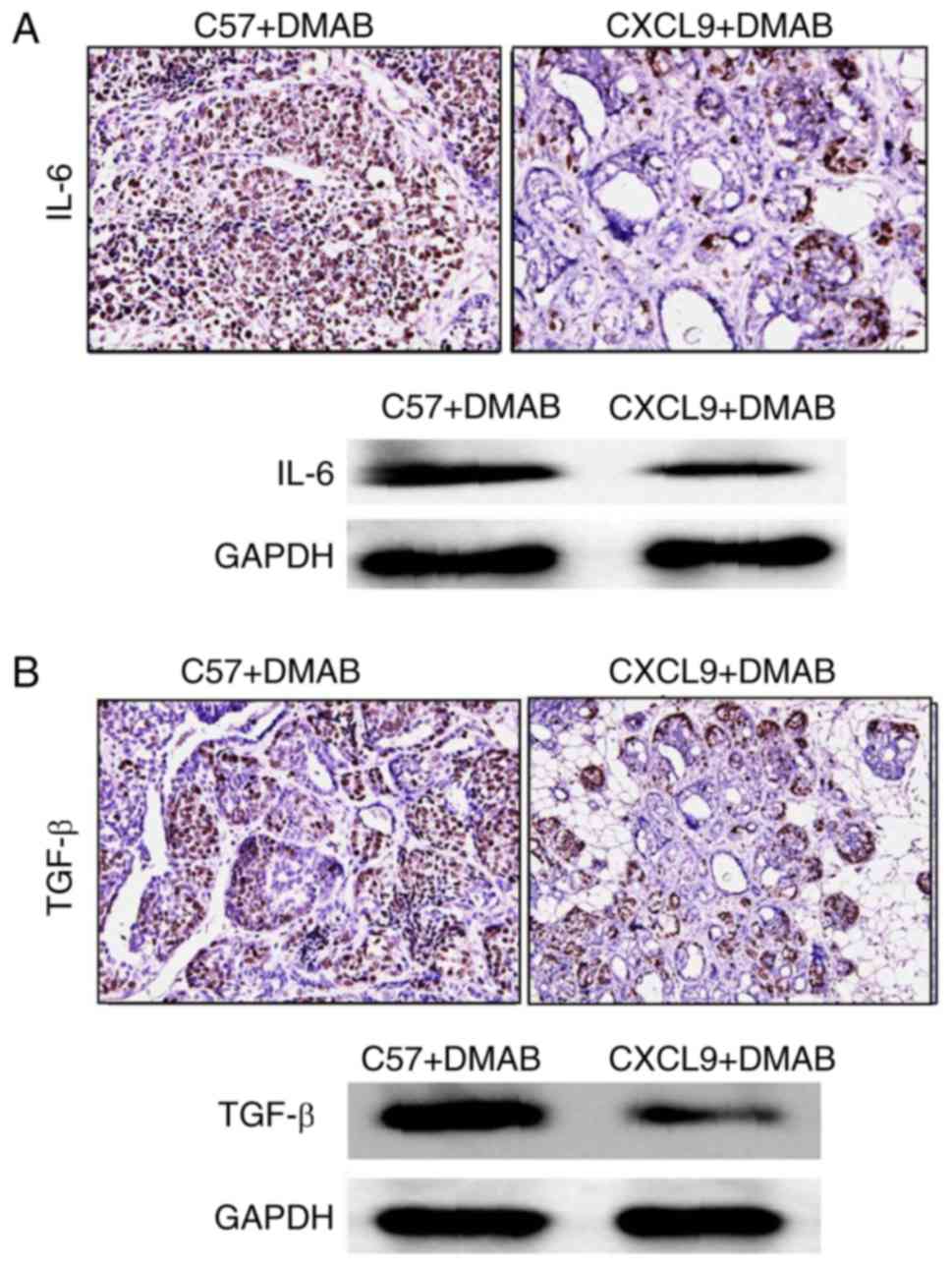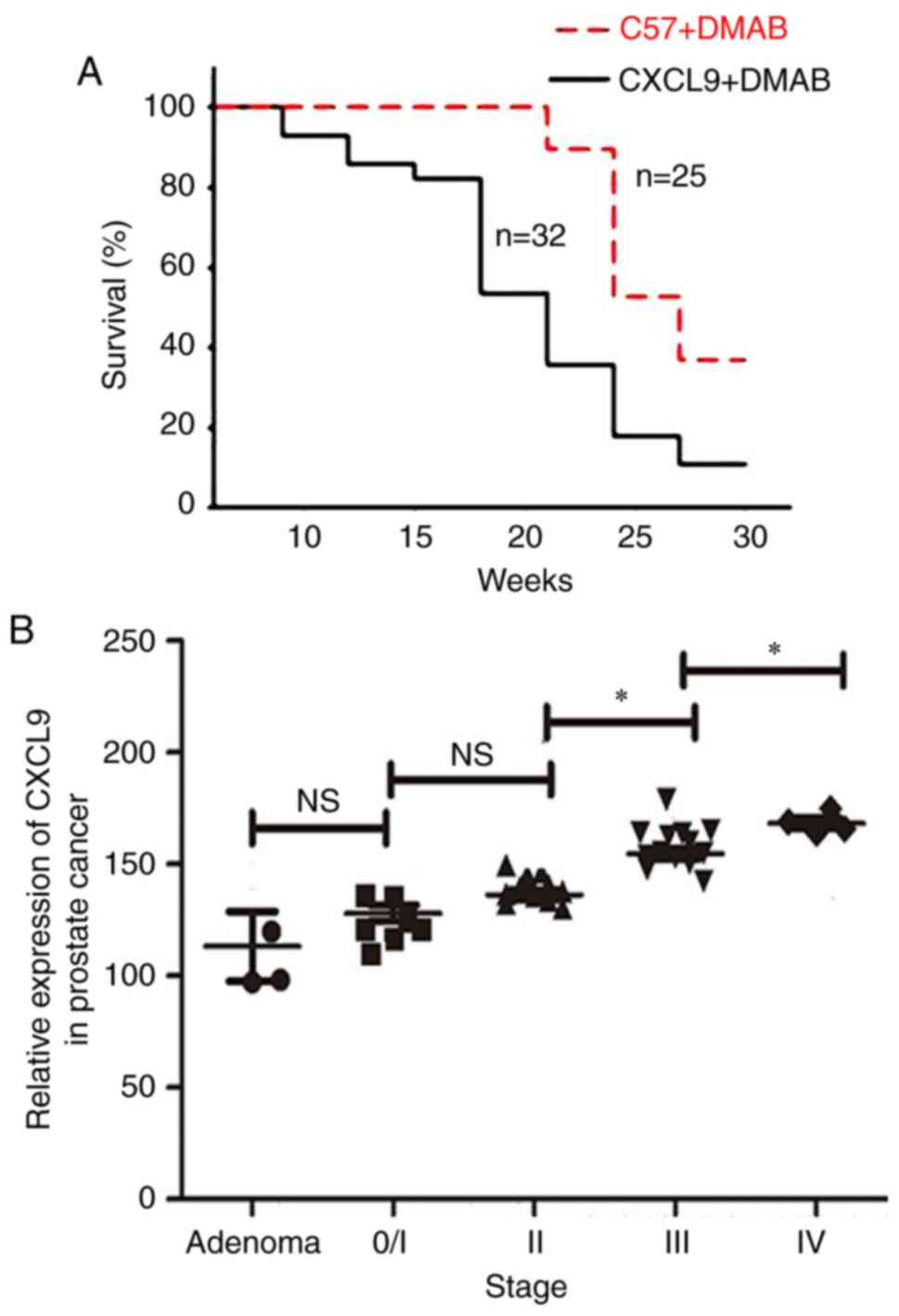|
1
|
Jemal A, Bray F, Center MM, Ferlay J, Ward
E and Forman D: Global Cancer Statistics. CA Cancer J Clin.
61:69–90. 2011. View Article : Google Scholar : PubMed/NCBI
|
|
2
|
Atherton MJ, Stephenson KB, Pol J, Wang F,
Lefebvre C, Stojdl DF, Nikota JK, Dvorkin-Gheva A, Nguyen A, Chen
L, et al: Customized viral immunotherapy for HPV-associated cancer.
Cancer Immunol Res. 5:847–859. 2017. View Article : Google Scholar : PubMed/NCBI
|
|
3
|
Dong B, Minze LJ, Xue W and Chen W:
Molecular insights into the development of T cell-based
immunotherapy for prostate cancer. Expert Rev Clin Immunol.
10:1547–1557. 2014. View Article : Google Scholar : PubMed/NCBI
|
|
4
|
Kumai T, Fan A, Harabuchi Y and Celis E:
Cancer immunotherapy: Moving forward with peptide T cell vaccines.
Curr Opin Immunol. 47:57–63. 2017. View Article : Google Scholar : PubMed/NCBI
|
|
5
|
Melssen M and Slingluff CL Jr: Vaccines
targeting helper T cells for cancer immunotherapy. Curr Opin
Immunol. 47:85–92. 2017. View Article : Google Scholar : PubMed/NCBI
|
|
6
|
Wang P, Li S, Siriwon N, Zhang X, Yang S,
Jin T, He F, Kim YJ, Mac J, Lu Z, Wang S, et al: Enhanced cancer
immunotherapy by chimeric antigen receptor-modified T Cells
engineered to secrete checkpoint inhibitors. Clin Cancer Res.
23:6982–6992. 2017. View Article : Google Scholar : PubMed/NCBI
|
|
7
|
Simmons G, Bertram S, Glowacka I, Steffen
I, Chaipan C, Agudelo J, Lu K, Rennekamp AJ, Hofmann H, Bates P and
Pöhlmann S: Different host cell proteases activate the
SARS-coronavirus spike-protein for cell-cell and virus-cell fusion.
Virology. 413:265–274. 2011. View Article : Google Scholar : PubMed/NCBI
|
|
8
|
Gao HM, Zhou H, Zhang F, Wilson BC, Kam W
and Hong JS: HMGB1 acts on microglia Mac1 to mediate chronic
neuroinflammation that drives progressive neurodegeneration. J
Neurosci. 31:1081–1092. 2011. View Article : Google Scholar : PubMed/NCBI
|
|
9
|
Swamydas M, Ricci K, Rego SL and Dréau D:
Mesenchymal stem cell-derived CCL-9 and CCL-5 promote mammary tumor
cell invasion and the activation of matrix metalloproteinases. Cell
Adh Migr. 7:315–324. 2013. View Article : Google Scholar : PubMed/NCBI
|
|
10
|
Kuo P, Tuong ZK, Teoh SM, Frazer IH,
Mattarollo S and Leggatt GR: HPV16E7-induced hyperplasia promotes
CXCL9/10 expression and induces CXCR3+ T-cell migration
to skin. J Invest Dermatol. S0022–202X, ppi 33358-4. 2017.
|
|
11
|
Matsumoto M, Oshiumi H and Seya T:
Antiviral responses induced by the TLR3 pathway. Rev Med Virol.
21:67–77. 2011. View
Article : Google Scholar : PubMed/NCBI
|
|
12
|
Beider K, Abraham M and Peled A:
Chemokines and chemokine receptors in stem cell circulation. Front
Biosci. 13:6820–6833. 2008. View
Article : Google Scholar : PubMed/NCBI
|
|
13
|
Han K, Zhao T, Chen X, Bian N, Yang T, Ma
Q, Cai C, Fan Q, Zhou Y and Ma B: microRNA-194 suppresses
osteosarcoma cell proliferation and metastasis in vitro and in vivo
by targeting CDH2 and IGF1R. Int J Oncol. 45:1437–1449. 2014.
View Article : Google Scholar : PubMed/NCBI
|
|
14
|
Drouillard A, Puleo F, Bachet JB, Ouazzani
S, Calomme A, Demetter P, Verset G, Van Laethem JL and Maréchal R:
DLL4 expression is a prognostic marker and may predict gemcitabine
benefit in resected pancreatic cancer. Br J Cancer. 115:1245–1252.
2016. View Article : Google Scholar : PubMed/NCBI
|
|
15
|
Livak KJ and Schmittgen TD: Analysis of
relative gene expression data using real-time quantitative PCR and
the 2(-Delta Delta C(T)) method. Methods. 25:402–408. 2001.
View Article : Google Scholar : PubMed/NCBI
|
|
16
|
Arnatt CK, Adams JL, Zhang Z, Haney KM, Li
G and Zhang Y: Design, syntheses, and characterization of piperzine
based chemokine receptor CCR5 antagonists as anti prostate cancer
agents. Bioorg Med Chem Lett. 24:2319–2323. 2014. View Article : Google Scholar : PubMed/NCBI
|
|
17
|
Aaron M, Klein RD, Rengel RC, Clinton SK,
Kulp SK, Kashida Y, Yamaguchi M, Wang X and Chen CS:
Chemopreventive and bioenergetic signaling effects of PDK1/Akt
pathway inhibition in a transgenic mouse model of prostate cancer.
Toxicol Pathol. 35:549–561. 2007. View Article : Google Scholar : PubMed/NCBI
|
|
18
|
Araki S, Omori Y, Lyn D, Singh RK,
Meinbach DM, Sandman Y, Lokeshwar VB and Lokeshwar BL:
Interleukin-8 is a molecular determinant of androgen independence
and progression in prostate cancer. Cancer Res. 67:6854–6862. 2007.
View Article : Google Scholar : PubMed/NCBI
|
|
19
|
Hol J, Wilhelmsen L and Haraldsen G: The
murine IL-8 homologues KC, MIP-2, and LIX are found in endothelial
cytoplasmic granules but not in weibel-palade bodies. J Leukoc
Biol. 87:501–508. 2010. View Article : Google Scholar : PubMed/NCBI
|
|
20
|
Corbel SY, Merzaban JS, Carlow DA, Gossens
K, Duenas J, So L, Yi L and Ziltener HJ: Recruitment of adult
thymic progenitors is regulated by P-selectin and its ligand
PSGL-1. Nat Immunol. 6:626–634. 2005. View
Article : Google Scholar : PubMed/NCBI
|
|
21
|
Delk NA and Farach-Carson MC:
Interleukin-6: A bone marrow stromal cell paracrine signal that
induces neuroendocrine differentiation and modulates autophagy in
bone metastatic PCa cells. Autophagy. 8:650–663. 2012. View Article : Google Scholar : PubMed/NCBI
|
|
22
|
Rautava S, Lu L, Nanthakumar NN,
Dubert-Ferrandon A and Walker WA: TGF-β2 induces maturation of
immature human intestinal epithelial cells and inhibits
inflammatory cytokine responses induced via the NF-κB pathway. J
Pediatr Gastroenterol Nutr. 54:630–638. 2012. View Article : Google Scholar : PubMed/NCBI
|
|
23
|
Guo R, Meng Q, Guo H, Xiao L, Yang X, Cui
Y and Huang Y: TGF-β2 induces epithelial-mesenchymal transition in
cultured human lens epithelial cells through activation of the
PI3K/Akt/mTOR signaling pathway. Mol Med Rep. 13:1105–1110. 2016.
View Article : Google Scholar : PubMed/NCBI
|
|
24
|
Echeverría C, Montorfano I, Tapia P,
Riedel C, Cabello-Verrugio C and Simon F: Endotoxin-induced
endothelial fibrosis is dependent on expression of transforming
growth factors β1 and β2. Infect Immun. 82:3678–3686. 2014.
View Article : Google Scholar : PubMed/NCBI
|
|
25
|
Chen H, Sun Y, Wu C, Magyar CE, Li X,
Cheng L, Yao JL, Shen S, Osunkoya AO, Liang C and Huang J:
Pathogenesis of prostatic small cell caricinma involves the
inactivation of the P53 pathway. Endocr Relat Cancer. 19:321–331.
2012. View Article : Google Scholar : PubMed/NCBI
|
|
26
|
Calzascia T, Pellegrini M, Hall H, Sabbagh
L, Ono N, Elford AR, Mak TW and Ohashi PS: TNF-alpha is critical
for antitumor but not antiviral T cell immunity in mice. J Clin
Invest. 117:3833–3845. 2007.PubMed/NCBI
|


















